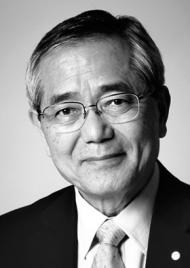Christchurch (/ˈkraɪstʃɜrtʃ/; Māori: Ōtautahi) is the largest city in the South Island of New Zealand, and the country's third-most populous urban area. It lies one third of the way down the South Island's east coast, just north of Banks Peninsula which itself, since 2006, lies within the formal limits of Christchurch.
The city was named by the Canterbury Association, which settled the surrounding province of Canterbury. The name of Christchurch was agreed on at the first meeting of the association on 27 March 1848. It was suggested by John Robert Godley, who had attended Christ Church, Oxford. Some early writers called the town Christ Church, but it was recorded as Christchurch in the minutes of the management committee of the association. Christchurch became a city by Royal Charter on 31 July 1856, making it officially the oldest established city in New Zealand.
The river that flows through the centre of the city (its banks now largely forming an urban park) was named Avon at the request of the pioneering Deans brothers to commemorate the Scottish Avon, which rises in the Ayrshire hills near what was their grandfathers' farm and flows into the Clyde.
The usual Māori name for Christchurch is Ōtautahi ("the place of Tautahi"). This was originally the name of a specific site by the Avon River near present-day Kilmore Street and the Christchurch Central Fire Station. The site was a seasonal dwelling of Ngāi Tahu chief Te Potiki Tautahi, whose main home was Port Levy on Banks Peninsula. The Ōtautahi name was adopted in the 1930s. Prior to that the Ngāi Tahu generally referred to the Christchurch area as Karaitiana, a transliteration of the English word Christian. The city's name is often abbreviated by New Zealanders to Chch. In New Zealand Sign Language, the city's name is the fingerspelled letter C (made by forming the hand into a C shape) signed twice, with the second to the right of the first, while mouthing "Christchurch".
First New Zealand's city
Christchurch became a city by Royal Charter on 31 July 1856, the first in New Zealand. Many of the city's Gothic Revival buildings by architect Benjamin Mountfort date from this period. Christchurch was the seat of provincial administration for the Province of Canterbury, which was abolished in 1876. In 1947, New Zealand's worst fire disaster occurred at Ballantyne's Department Store in the inner city, with 41 people killed in a blaze which razed the rambling collection of buildings. The Lyttelton road tunnel between Lyttelton and Christchurch was opened in 1964. Christchurch hosted the 1974 British Commonwealth Games.

